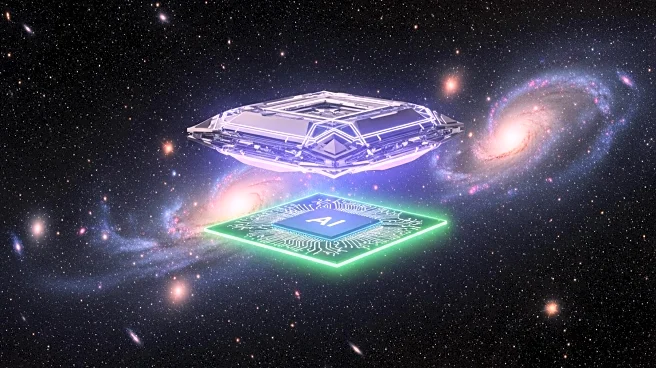What's Happening?
Cosmic Shielding, an Atlanta-based startup, has developed a lightweight nanocomposite called Plasteel, designed to protect advanced commercial processors from space radiation. This innovation addresses the challenge of integrating high-performance computing power into satellites, which traditionally rely on radiation-hardened chips that lag behind commercial designs. The company successfully demonstrated Plasteel's effectiveness by shielding an Nvidia Jetson Orin NX GPU aboard an Aethero cubesat, proving its capability to operate safely in orbit. This breakthrough has attracted interest from both commercial and government sectors, including the U.S. military, which is keen on utilizing AI and machine-learning algorithms in space.
Why It's Important?
The development of effective radiation shielding is crucial for advancing space technology, particularly in enabling the use of high-performance AI chips in orbit. This capability allows for data processing closer to the source, reducing the need to relay information back to Earth. Cosmic Shielding's technology could significantly enhance the operational efficiency of satellites, benefiting both commercial and military applications. The startup's collaboration with the Air Force Research Laboratory and other international space agencies highlights the growing interest in overcoming the limitations of current radiation shielding methods.
What's Next?
Cosmic Shielding has secured a TACFI contract from the Air Force, providing funding to further develop its technology. The company plans to build a modeling tool for the Air Force Research Laboratory to predict the performance of electronics in space. This initiative will involve testing commercial chips under various radiation conditions and developing a 'shielding forecast' model to aid mission design. The startup is also exploring the potential of Plasteel for human spaceflight, aiming to protect both electronics and astronauts from cosmic radiation.










